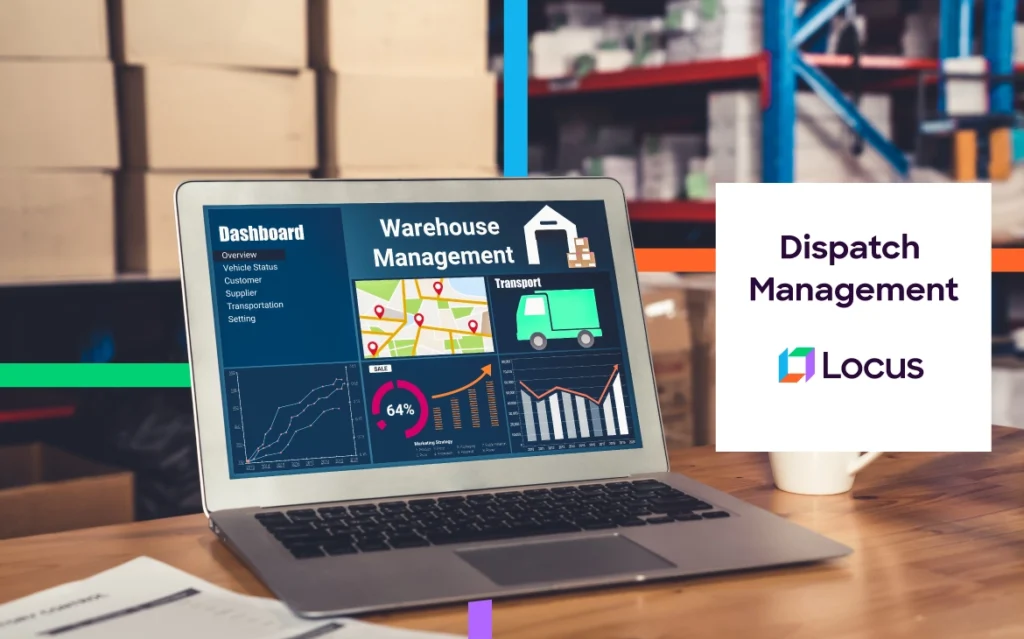Welcome to the fast-paced world of dispatch management, where precision and efficiency reign supreme. Navigating the complexities of coordinating schedules, optimizing routes, and ensuring timely deliveries is no small feat. Dispatch managers are the unsung heroes behind the scenes, orchestrating a symphony of logistics to keep operations running smoothly. However, with great responsibility comes significant challenges. Let’s delve into the hurdles dispatch managers face and explore strategies for overcoming them in this dynamic field.
Common challenges faced by dispatch managers
Dispatch managers often face a myriad of challenges in their day-to-day operations. One common issue is juggling multiple tasks simultaneously, from coordinating deliveries to managing driver schedules. This can lead to inefficiencies and delays if not handled effectively.
Another challenge is ensuring timely communication between dispatchers, drivers, and customers. Miscommunication or delays in relaying important information can disrupt delivery and impact customer satisfaction.
Resource allocation poses yet another obstacle for dispatch managers. Balancing workload distribution among drivers while considering factors like traffic conditions and delivery deadlines requires careful planning and coordination.
Moreover, unexpected issues such as vehicle breakdowns or last-minute route changes can complicate a complex job. Adaptability and quick problem-solving skills are essential when faced with these unforeseen circumstances.
The importance of effective communication in dispatch management
Effective communication is the backbone of successful dispatch management. Clear and timely communication ensures that all team members are on the same page, leading to smoother operations. Dispatch managers must communicate efficiently with drivers, customers, and other stakeholders to ensure deliveries are made accurately and on time.
In a fast-paced environment like dispatch management, constant updates and real-time information sharing are crucial. This helps address any issues promptly and make necessary adjustments to schedules or routes as needed. By maintaining open lines of communication, potential challenges can be identified early on and resolved before they escalate.
Utilizing various communication channels such as mobile apps, GPS tracking systems, and two-way radios can streamline the flow of information within a dispatch team. Regular check-ins, feedback sessions, and debriefs are vital in improving overall communication effectiveness.
Strategies for managing and overcoming challenges
Facing challenges in dispatch management is inevitable, but having effective strategies in place can make all the difference. One critical approach is prioritizing proper training for dispatch staff to handle unexpected situations quickly and efficiently. Clear communication channels are crucial – ensuring that everyone involved is always on the same page.
Utilizing technology can streamline operations, such as implementing GPS tracking systems or real-time monitoring tools. It’s also essential to have contingency plans in case of emergencies or delays, allowing for quick decision-making and problem-solving under pressure. Regularly reviewing and adjusting processes based on performance metrics can lead to continuous improvement.
Encouraging a culture of collaboration among team members fosters a supportive environment where everyone works together towards common goals. Flexibility and adaptability are critical traits for successful dispatch managers – pivoting quickly when faced with unexpected challenges ensures smooth operations even in turbulent times.
Technological advancements in dispatch management
The world of dispatch management is evolving rapidly, with technological advancements paving the way for more efficient operations. Technology has revolutionized how dispatchers coordinate and manage their teams, from GPS tracking systems to sophisticated routing software.
Integrating artificial intelligence (AI) in dispatch management systems is a crucial advancement. AI algorithms can analyze vast amounts of data in real time, helping dispatchers make informed decisions quickly and accurately. This leads to improved response times and better resource allocation.
Moreover, mobile applications have become indispensable tools for dispatchers and field workers. These apps allow seamless communication, task assignment, and tracking all in one place, streamlining workflows and reducing manual errors.
Furthermore, cloud-based platforms enable remote access to critical information from anywhere at any time, ensuring that dispatch operations remain agile and responsive to changing demands. Accessing data on the go enhances overall productivity while improving customer satisfaction.
Innovations like predictive analytics are also transforming how dispatch managers anticipate issues before they arise, enabling proactive problem-solving strategies that minimize disruptions and optimize resources effectively. Embracing these technological innovations is crucial for staying competitive in today’s fast-paced business environment.
Case study: Successful dispatch management strategies implemented by a company
Imagine a company that revolutionized dispatch management through innovative strategies. They optimized routing by leveraging real-time data analytics to minimize delivery times and reduce fuel consumption and additionally, implementing GPS tracking technology allowed for greater visibility into fleet movements.
The company also focused on enhancing communication between drivers and dispatchers by utilizing mobile apps that enabled instant messaging and updates on job statuses. This streamlined coordination led to improved efficiency and customer satisfaction.
Moreover, they invested in employee training programs to ensure staff had the necessary skills to handle any challenges during operations. By fostering a culture of continuous improvement, the company could stay ahead of competitors in the industry.
This case study showcases how strategic investments in technology, communication, and training can elevate dispatch management practices to new heights of success.
Conclusion
In the dynamic world of dispatch management, adaptability and innovation play a crucial role in ensuring success. As industries evolve and customer expectations change, dispatch managers must be willing to embrace new technologies, strategies, and best practices to stay ahead of the curve.
By remaining adaptable to changing circumstances, such as unexpected delays or shifts in demand, dispatch managers can effectively navigate challenges and keep operations running smoothly. Innovation in dispatch management involves leveraging technology solutions like GPS tracking systems, route optimization software, and real-time communication tools to enhance efficiency and productivity.
Adapting to change while fostering a culture of innovation within the dispatch team is critical to overcoming challenges and achieving long-term success in managing a dispatch operation. By staying proactive, open-minded, and continuously seeking improvement opportunities, dispatch managers can optimize their operations for maximum effectiveness while delivering exceptional customer service.
